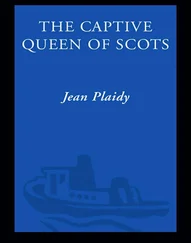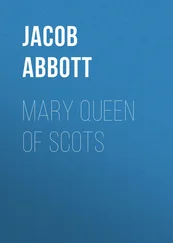Henry Bell - Life of Mary Queen of Scots, Volume 2 (of 2)
Здесь есть возможность читать онлайн «Henry Bell - Life of Mary Queen of Scots, Volume 2 (of 2)» — ознакомительный отрывок электронной книги совершенно бесплатно, а после прочтения отрывка купить полную версию. В некоторых случаях можно слушать аудио, скачать через торрент в формате fb2 и присутствует краткое содержание. Жанр: foreign_antique, foreign_prose, на английском языке. Описание произведения, (предисловие) а так же отзывы посетителей доступны на портале библиотеки ЛибКат.
- Название:Life of Mary Queen of Scots, Volume 2 (of 2)
- Автор:
- Жанр:
- Год:неизвестен
- ISBN:нет данных
- Рейтинг книги:5 / 5. Голосов: 1
-
Избранное:Добавить в избранное
- Отзывы:
-
Ваша оценка:
- 100
- 1
- 2
- 3
- 4
- 5
Life of Mary Queen of Scots, Volume 2 (of 2): краткое содержание, описание и аннотация
Предлагаем к чтению аннотацию, описание, краткое содержание или предисловие (зависит от того, что написал сам автор книги «Life of Mary Queen of Scots, Volume 2 (of 2)»). Если вы не нашли необходимую информацию о книге — напишите в комментариях, мы постараемся отыскать её.
Life of Mary Queen of Scots, Volume 2 (of 2) — читать онлайн ознакомительный отрывок
Ниже представлен текст книги, разбитый по страницам. Система сохранения места последней прочитанной страницы, позволяет с удобством читать онлайн бесплатно книгу «Life of Mary Queen of Scots, Volume 2 (of 2)», без необходимости каждый раз заново искать на чём Вы остановились. Поставьте закладку, и сможете в любой момент перейти на страницу, на которой закончили чтение.
Интервал:
Закладка:
When Bothwell came home, he called for a drink; and, taking off his clothes, went to bed immediately. He had not lain there above half an hour when the news was brought him that the House of the Kirk-of-Field had been blown up, and the King slain. Exclaiming that there must be treason abroad, and affecting the utmost alarm and indignation, he rose and put on the same clothes he had worn when he was last with the Queen. The Earl of Huntly and others soon joined him, and, after hearing from them as much as was then known of the matter, it was thought advisable to repair to the Palace, to inform Mary of what had happened. They found her already alarmed, and anxious to see them, some vague rumours of the accident having reached her. They disclosed the whole melancholy truth as gradually and gently as possible, attributing Darnley’s death either to the accidental explosion of some gunpowder in the neighbourhood, or to the effects of lightning. Mary’s distress knew no bounds; and seeing that it was hopeless to reason with her in the first anguish of her feelings, Bothwell and the other Lords left her just as day began to break, and proceeded to the Kirk-of-Field. 49 49 Melville’s Memoirs, p. 174. Lesley in Anderson, vol. i. p. 24. Freebairn, p. 115.
There they found every thing in a state of confusion; – the edifice in ruins, and the town’s-people gathered round it in dismay. Of the five persons who were in the house at the time of the explosion, one only was saved. Darnley, and his servant William Taylor, who slept in the room immediately above the gunpowder, had been most exposed to its effects, and they were accordingly carried through the air over the town wall, and across the lane on the other side, and were found lying at a short distance from each other in a garden to the south of this lane, – both in their night-dress, and with little external injury. Simmons, Nelson, and the boy, being nearer the town-wall, were only collaterally affected by the explosion. They were, however, all buried in the ruins, out of which Nelson alone had the good fortune to be taken alive. The bodies were, by Bothwell’s command, removed to an adjoining house, and a guard from the Palace set over them. 50 50 Anderson, vol. i. p. 36. – Goodall, vol. ii. p. 245.
Darnley and his servant being found at so great a distance, and so triflingly injured, it was almost universally supposed at the time, and for long afterwards, that they had been first strangled or assassinated, and then carried out to the garden. This supposition is now proved, beyond a doubt, to have been erroneous. If Darnley had been first murdered, there would have been no occasion to have blown up the house; and if this was done, that his death might appear to be the result of accident, his body would never have been removed to such a distance as might appear to disconnect it with the previous explosion. Before the expansive force of gunpowder was sufficiently understood, it was not conceived possible that it could have acted as in the present instance; and various theories were invented, none of which were so simple or so true, as that which accords with the facts now established. It is the depositions already quoted that set the matter at rest; for, having confessed so much of the truth, there could have been no reason for concealing any other part of it. Hepburn declared expressly, that “he knew nothing but that Darnley was blown into the air, for he was handled with no men’s hands that he saw;” and Hay deponed that Bothwell, some time afterwards, said to him, “What thought ye when ye saw him blown into the air?” Hay answered, – “Alas! my Lord, why speak ye of that, for whenever I hear such a thing, the words wound me to death, as they ought to do you.” 51 51 Laing, vol. ii. p. 289 et 290.
There is nothing wonderful in the bodies having been carried so far; for it is mentioned by a cotemporary author, that “they kindled their train of gunpowder, which inflamed the whole timber of the house, and troubled the walls thereof in such sort, that great stones of the length of ten feet, and of the breadth of four feet, were found blown from the house a far way.” 52 52 Historie of King James the Sext, p. 6.
Besides, after the minute account, which a careful collation of the different confessions and depositions has enabled us to give, of the manner in which Bothwell spent every minute of his time, from the period of the Queen’s leaving Darnley, till the unfortunate Prince ceased to exist, it would be a work of supererogation to seek to refute, by any stronger evidence, the notion that he was strangled.
It is, however, somewhat remarkable, that, even in recent times, authors of good repute should have allowed themselves to be misled by the exploded errors of earlier writers. “The house,” says Miss Benger, “was invested with armed men, some of whom watched without, whilst others entered to achieve their barbarous purpose; these having strangled Darnley and his servant with silken cords, carried their bodies into the garden, and then blew up the house with powder.” 53 53 Miss Benger, vol. ii. p. 313.
This is almost as foolish as the report mentioned by Melville, that he was taken out of his bed, and brought down to a stable, where they suffocated him by stopping a napkin into his mouth; or, as that still more ridiculous story alluded to by Sanderson, that the Earl of Dunbar, and Sir Roger Aston, an Englishman, who chose to hoax his countrymen, by telling them that he lodged in the King’s chamber that night, “having smelt the fire of a match, leapt both out at a window into the garden; and that the King catching hold of his sword, and suspecting treason, not only against himself, but the Queen and the young Prince, who was then at Holyrood House with his mother, desired him (Sir Roger Aston) to make all the haste he could to acquaint her of it, and that immediately armed men, rushing into the room, seized him single and alone, and stabbed him, and then laid him in the garden, and afterwards blew up the house.” 54 54 Sanderson’s Life of Mary, p. 48. – Freebairn, p. 113.
Buchanan, Crawford and others, fall into similar mistakes; but Knox, or his continuator, writes more correctly, and mentions, besides, that medical men “being convened, at the Queen’s command, to view and consider the manner of Darnley’s death,” were almost unanimously of opinion that he was blown into the air, although he had no mark of fire. 55 55 Knox, p. 404.
Henry Stuart, Lord Darnley, Duke of Albany and King of Scotland, perished in the twenty-first year of his age, and the eighteenth month of his reign. The suddenness and severity of his fate excited a degree of compassion, and attached an interest to his memory, which, had he died in the ordinary course of nature, would never have been felt. He had been to Scotland only a cause of civil war, – to his nobility an object of contempt, of pity, or of hatred, – and to his wife a perpetual source of sorrow and misfortune. Any praise he may deserve must be given to him almost solely on the score of his personal endowments; his mind and dispositions had been allowed to run to waste, and were under no controul but that of his own wayward feelings and fancies. Keith, in the following words, draws a judicious contrast between his animal and intellectual qualities. “He is said to have been one of the tallest and handsomest young men of the age; that he had a comely face and pleasant countenance; that he was a most dexterous horseman, and exceedingly well skilled in all genteel exercises, prompt and ready for all games and sports, much given to the diversions of hawking and hunting, to horse-racing and music, especially playing on the lute; he could speak and write well, and was bountiful and liberal enough. But, then, to balance these good natural qualifications, he was much addicted to intemperance, to base and unmanly pleasures; he was haughty and proud, and so very weak in mind, as to be a prey to all that came about him; he was inconstant, credulous, and facile, unable to abide by any resolutions, capable to be imposed upon by designing men, and could conceal no secret, let it tend ever so much to his own welfare or detriment.” 56 56 Keith, p. 365.
With all his faults, there was no one in Scotland who lamented him more sincerely than Mary. She had loved him deeply; and whilst her whole life proves that she was incapable of indulging that violent and unextinguishable hatred which prompts to deeds of cruelty and revenge, it likewise proves that it was almost impossible for her to cease to esteem an object for which she had once formed an attachment. Murray must himself have allowed the truth of the first part of this statement; and for many days before his death, Darnley had himself felt the force of the latter. She had, no doubt, too much good sense to believe that Darnley, in his character of king, was a loss to the country; but the tears she shed for him, are to be put down to the account, not of the queen, but of the woman and the wife.
Интервал:
Закладка:
Похожие книги на «Life of Mary Queen of Scots, Volume 2 (of 2)»
Представляем Вашему вниманию похожие книги на «Life of Mary Queen of Scots, Volume 2 (of 2)» списком для выбора. Мы отобрали схожую по названию и смыслу литературу в надежде предоставить читателям больше вариантов отыскать новые, интересные, ещё непрочитанные произведения.
Обсуждение, отзывы о книге «Life of Mary Queen of Scots, Volume 2 (of 2)» и просто собственные мнения читателей. Оставьте ваши комментарии, напишите, что Вы думаете о произведении, его смысле или главных героях. Укажите что конкретно понравилось, а что нет, и почему Вы так считаете.












